
Many of us are used to seeing Jerusalem artichoke as a weed. Well, Yes, it comes with a bonus tubers, which, according to rumors, are very useful — but it is not very clear what to do with them, how to use them and why. And let’s try to deal with all this — I assure you, it will be interesting.
Jerusalem artichoke is not so simple…
Jerusalem artichoke is a plant with a rich history, many names and a huge benefit hidden behind a rather modest appearance.
In our region, this is a real weed that grows not only in gardens, but also just on the roadsides. Without any care, it produces a good crop of tubers, and nimble rodents are happy to pull them all over the area, helping the Jerusalem artichoke to spread. And it is not an easy task to get him out, if he has settled somewhere.
Looking at all this, of course, it is quite difficult to imagine that the “weed” is specially cultivated somewhere, and scientists are seriously engaged in breeding its varieties and exploring numerous ways of useful use of the plant. And yet…

Today there are more than 300 varieties of Jerusalem artichoke with different characteristics in the world. They are usually divided into tuberous, or vegetable, and forage-with a predominance of green mass. Breeders are working on creating new varieties that are suitable for growing in different climatic conditions, highly productive, with a high content of useful substances. Even varieties whose tubers can be stored for a long time have been bred, which allows them to be used fresh almost all year round. And there is a hybrid of Jerusalem artichoke with sunflower. However, it is grown only in the southern regions.
This culture is native to North America. The Indians called it the “sun root” and used the tubers for food. From there, the plant got to France in 1605, where it got the name by which we know it today — Jerusalem artichoke.
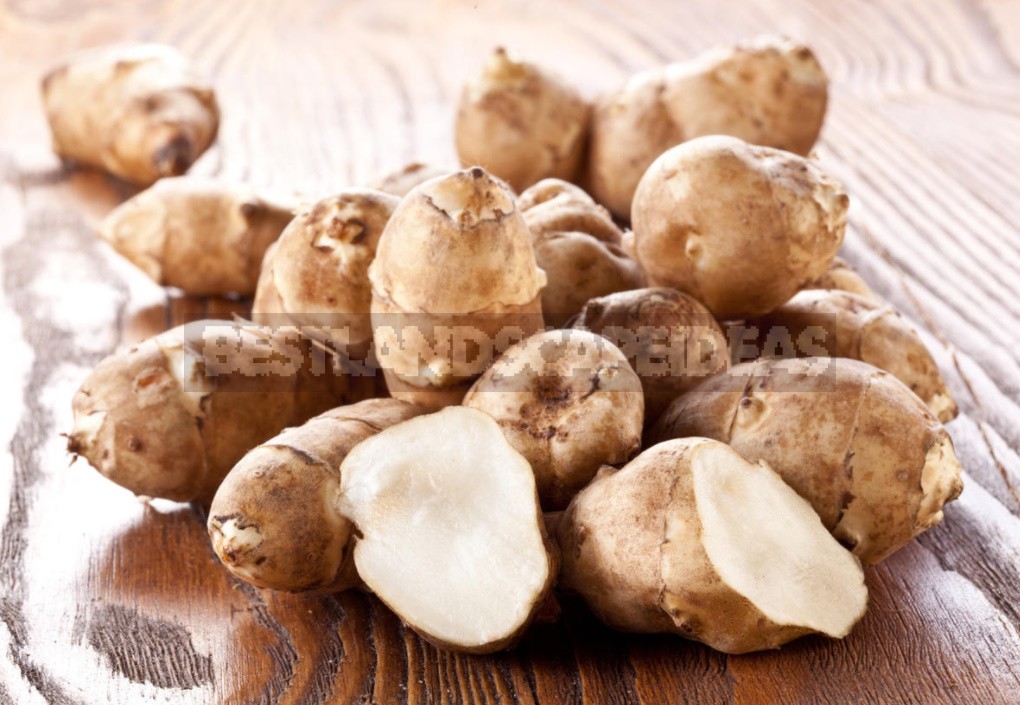
Our ancestors used Jerusalem artichoke exclusively as a medicinal plant, interest in its nutritional properties appeared much later — in fact, a wide audience about them to this day is not so much known, although in fashionable restaurants today you can taste all sorts of dishes with Jerusalem artichoke — from salads and side dishes to desserts.
And why is he so honored, why is he so good?
What is useful for Jerusalem artichoke and where it is used
Perhaps the most valuable “ingredient” in the composition of Jerusalem artichoke tubers is the polysaccharide inulin, whose content in dry matter can reach up to 80%. And it is useful not only for diabetics (inulin effectively reduces blood glucose), the possibilities of this substance are much wider.
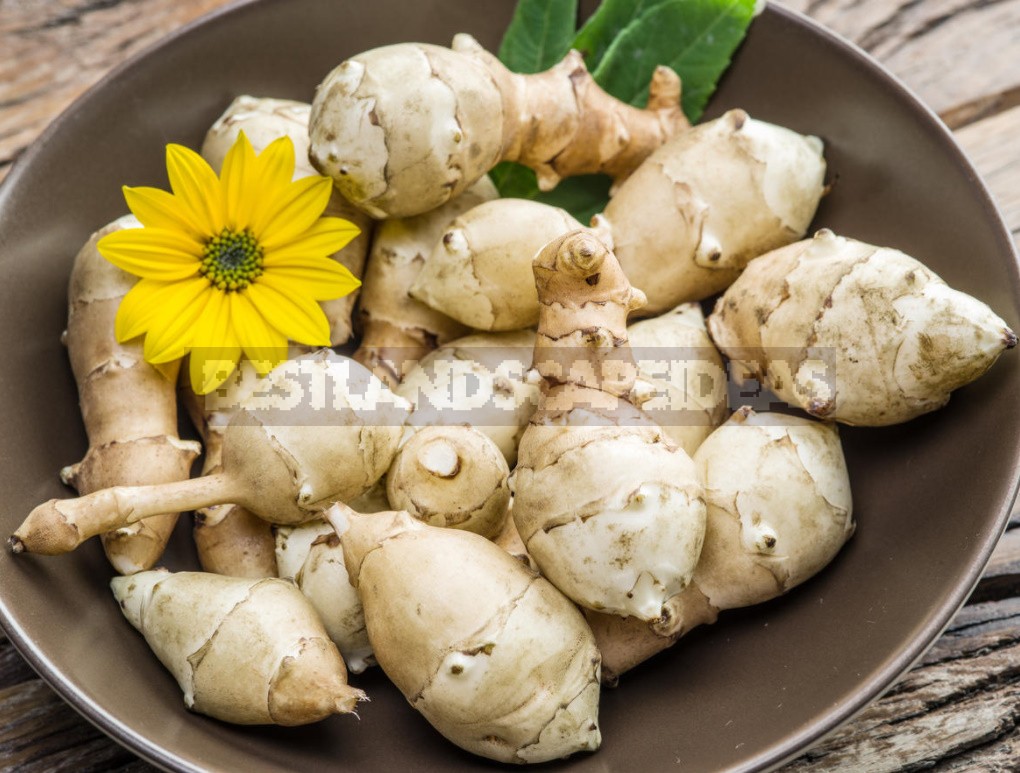
As a natural prebiotic, inulin helps the growth of beneficial microflora and improves digestive processes. It contributes to the normalization of metabolism (and improving carbohydrate and fat metabolism, in turn, can help in getting rid of excess weight); reduces the level of “bad” cholesterol and prevents the formation of atherosclerotic plaques on the walls of blood vessels; improves the absorption of magnesium (and magnesium has a positive effect on the cardiovascular system and-as a result — can help reduce and stabilize blood pressure); it has a choleretic effect, stimulates the recovery of damaged liver cells.
Inulin (including in the form of powder from Jerusalem artichoke tubers) is part of a variety of dietary Supplements (sometimes very expensive, by the way) — and we can use all its useful properties for free, just eating “ground pear”, which is easy to grow on your own site.
However, the benefits of Jerusalem artichoke are not limited to inulin. Tubers also contain vitamins (C, A, PP, b vitamins), mineral salts (potassium, calcium, magnesium, iron, etc.), pectins and other important substances for the body. The leaves of the plant are also used as medicinal raw materials.
Look at this plant is worth it and those who keep any animals. For food, both tubers and the aboveground part (which is given to animals in fresh form and used for silage harvesting) are used. Cows, goats, sheep, pigs, rabbits, and chickens willingly eat Jerusalem artichoke, while the latter increases egg production, and cows and goats ‘ milk becomes more fat.
On an industrial scale, ethyl alcohol is obtained from Jerusalem artichoke; tubers are used for the production of dry powder (used, in particular, in dietary Supplements), fructose-glucose syrups (raw materials for the food and confectionery industry, dietary Supplements).
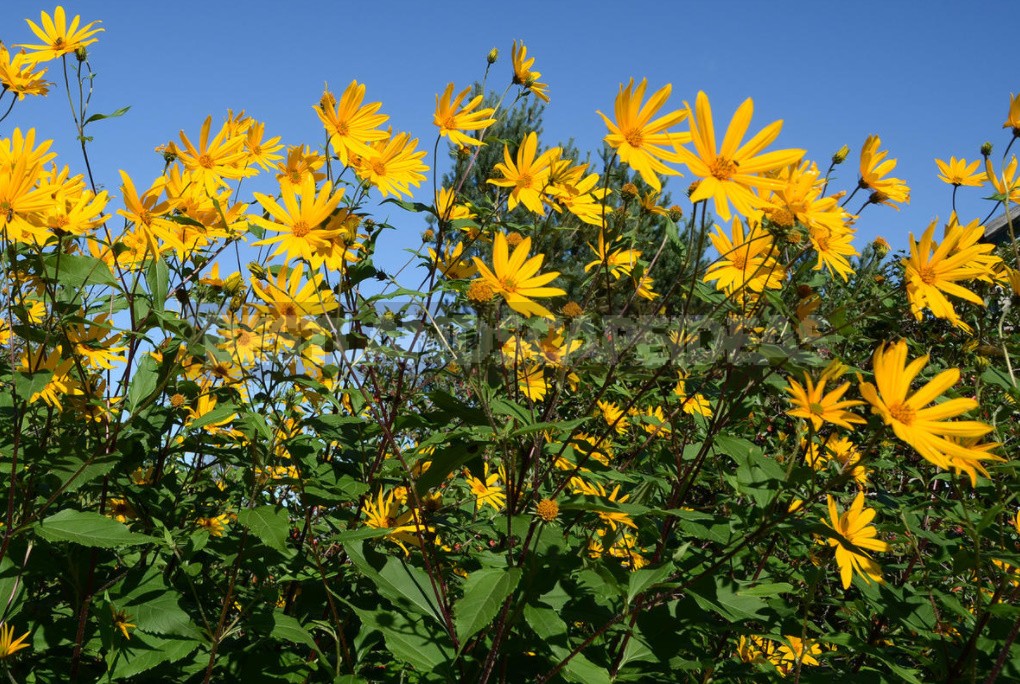
Jerusalem artichoke plantings absorb carbon dioxide more efficiently than forest stands — 6 tons per year against 3-4. And they release more oxygen. So, if you need a hedge to effectively protect yourself from environmentally unfavorable areas (industrial zones, highways, etc.), do not rush to the nursery for expensive seedlings of coniferous plants — pay attention to Jerusalem artichoke. Yes, the fence will not be all-season — this is its big disadvantage, no doubt. So after all, most people do not live in dachas all year round… But fast, simple and very budget-friendly.
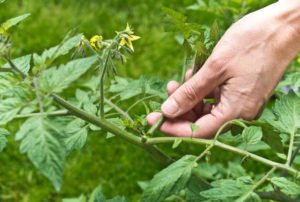
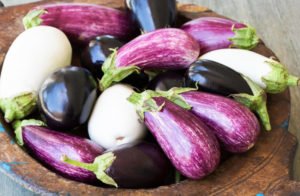
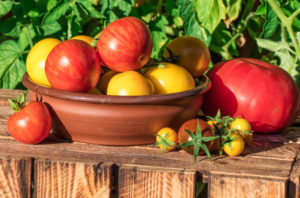
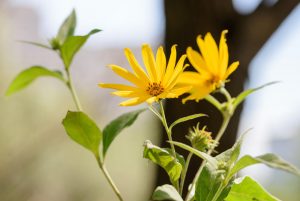
Leave a Reply